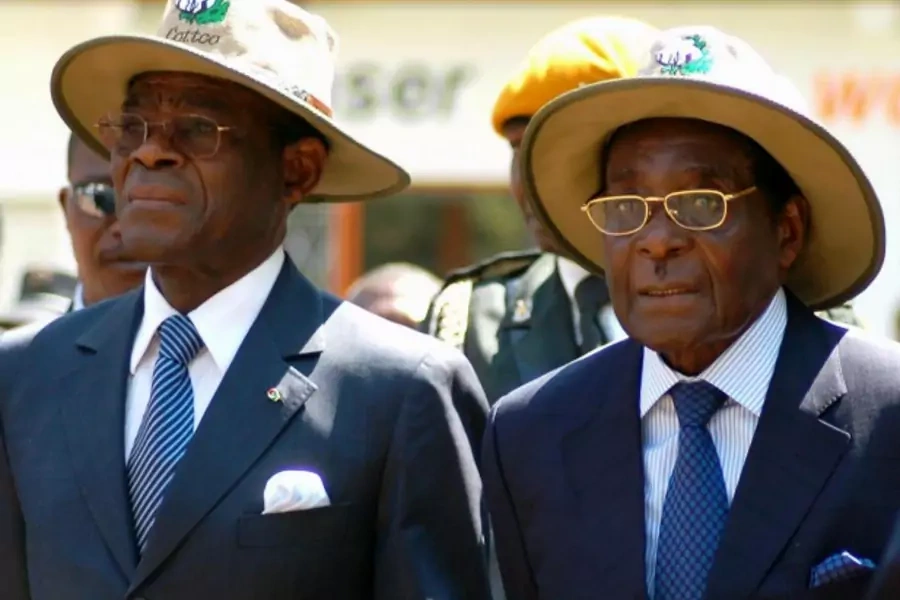More on:
Reform of the United Nations Security Council (UNSC) is a perennial African chestnut. The UNSC is more involved in Africa than in any other region, and many Africans feel it is acutely unjust that none of the permanent members are from the continent. (The permanent members are the victorious powers in World War II: China, France, Russia, United Kingdom, and the United States.)
Now, Zimbabwe President Robert Mugabe and Equatorial Guinea President Teodoro Obiang Nguema Mbasogo are weighing-in. At a joint press event marking Obiang’s visit to Harare, Zimbabwe, the two presidents called for Africa to have at least one UNSC permanent member with the right to exercise a veto.
Mugabe and Obiang are among the least attractive of Africa’s “presidents for life.” They are rivals for the designation of Africa’s “worst dictator.” Obiang has been chief of state since 1979, Mugabe since 1987. Obiang, whom Freedom House considers “one of the world’s most kleptocratic living autocrats,” has accumulated a personal fortune estimated by Forbes (in 2006) at $600 million, far eclipsing Mugabe, whose net worth is estimated at a paltry (in comparison) $10 million.
Security Council reform, with a permanent seat for an African country (or any other for that matter), is not on any realistic agenda, not least because the permanent members are far from a consensus. Among African states, there is no agreement as to which country should get a permanent seat should that ever become a possibility. Nigeria and South Africa both insist that it is the most appropriate candidate.
But, the call by Mugabe, the current Chairman of the African Union (AU), and Obiang for Security Council reform may have been intended to burnish somewhat their sordid images before the upcoming AU meeting in Addis Ababa. The 26th AU Summit launches the “African Year of Human Rights.”
More on:
 Online Store
Online Store
